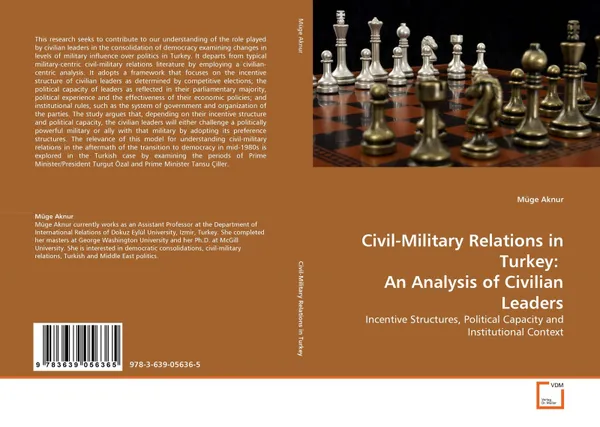Civil-Military Relations in Turkey: An Analysis of Civilian Leaders
📕 This research seeks to contribute to our understanding of the role played by civilian leaders in the consolidation of democracy examining changes in levels of military influence over politics in Turkey. It departs from typical military-centric civil-military relations literature by employing a civilian-centric analysis. It adopts a framework that focuses on the incentive structure of civilian leaders as determined by competitive elections; the political capacity of leaders as reflected in their parliamentary majority, political experience and the effectiveness of their economic policies; and institutional rules, such as the system of government and organization of the parties. The study argues that, depending on their incentive structure and political capacity, the civilian leaders will either challenge a politically powerful military or ally with that military by adopting its preference structures. The relevance of this model for understanding civil-military relations in the aftermath of the transition to democracy in mid-1980s is explored in the Turkish case by examining the periods of Prime Minister/President Turgut Özal and Prime Minister Tansu Çiller.
Мнения
